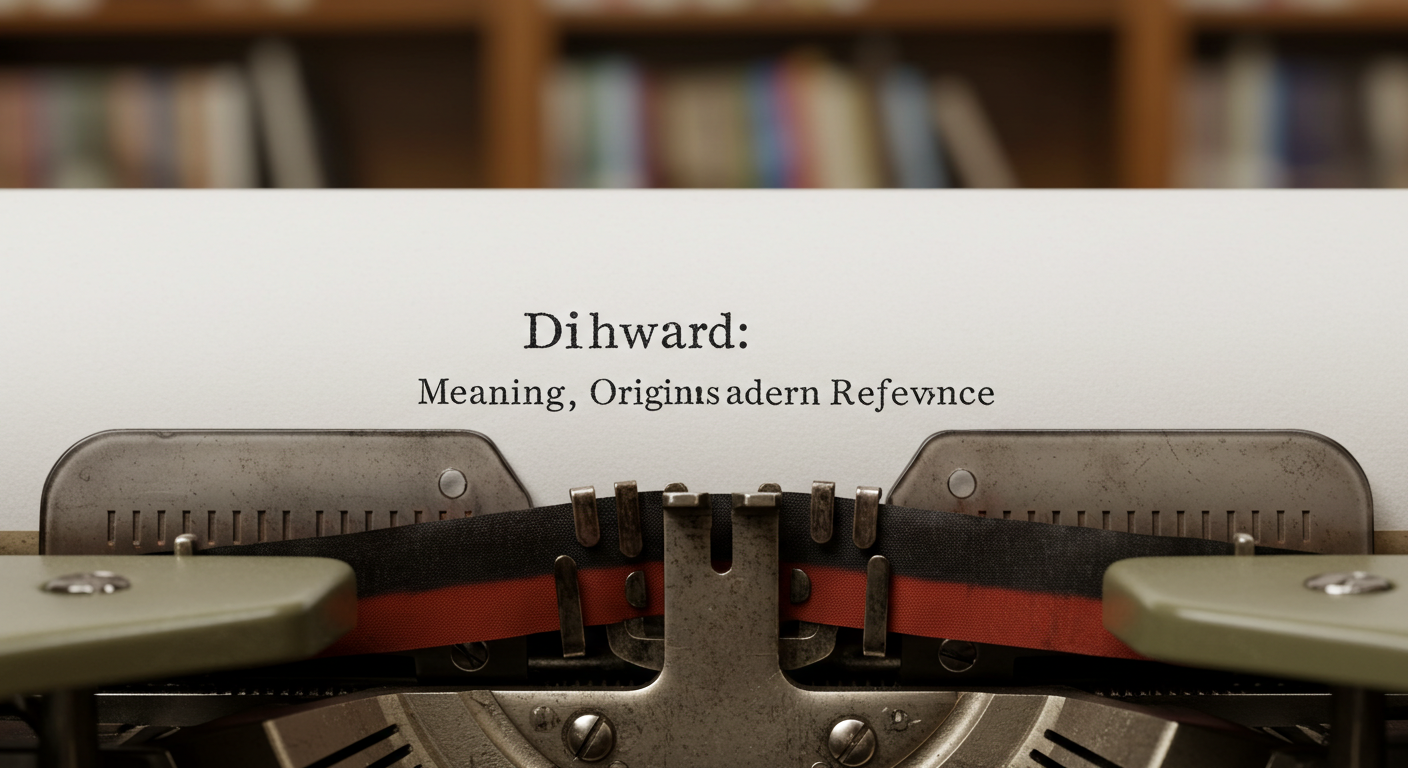The word Dihward has recently appeared in discussions across different contexts, sparking curiosity and interest. While its exact origins are still being explored, the concept has begun to represent innovation, adaptability, and a forward-looking perspective. Dihward is not just a word—it carries symbolic meaning, cultural value, and growing relevance in today’s fast-paced world.
In this article, we will take a closer look at Dihward: its background, its symbolic interpretations, modern applications, and potential impact on the future.
Origins of Dihward
The origins of Dihward are somewhat mysterious. It is believed to have roots in older traditions where it symbolized continuity, resilience, and transformation. Communities often used similar terms to describe the cycle of renewal and the ability to adapt to changing times.
Over time, Dihward evolved from a symbolic term to a broader concept, adopted into different modern fields including education, business, technology, and wellness.
Symbolism of Dihward
One reason Dihward has drawn attention is its symbolic depth. It represents universal qualities:
-
Balance – Maintaining harmony in personal and professional life.
-
Growth – The pursuit of learning and self-improvement.
-
Strength – Resilience in the face of challenges.
-
Unity – Connecting individuals with their communities and environment.
The symbolic meaning of Dihward is flexible enough to adapt to many cultural and personal interpretations, making it relevant across different contexts.
Dihward in Education
In education, Dihward is often used as a guiding principle for lifelong learning. Teachers and institutions draw on its meaning to encourage curiosity, persistence, and adaptability in students.
Applications in education include:
-
Encouraging critical thinking and problem-solving.
-
Promoting resilience in facing academic challenges.
-
Supporting continuous learning beyond the classroom.
The idea of Dihward in education is simple yet powerful: learning never truly ends—it evolves, just as people and societies do.
Dihward in Business and Leadership
Businesses and leaders are also embracing the concept of Dihward as a philosophy for growth and adaptability. In a world where industries change quickly, companies that embrace flexibility and resilience often succeed.
For leaders, Dihward symbolizes:
-
The ability to adapt to challenges.
-
Building strong, unified teams.
-
Guiding organizations toward long-term sustainability.
By applying the principles of Dihward, businesses can focus on steady growth while maintaining balance with ethical and social responsibilities.
Dihward in Technology
In technology, Dihward represents innovation that adapts to human needs rather than the other way around. It reflects the idea of creating solutions that are not just advanced but also sustainable and people-centered.
Examples in technology:
-
User-centered design for accessibility.
-
Sustainable solutions to reduce environmental impact.
-
Adaptive platforms that evolve with changing user behavior.
By linking technology with Dihward, innovators emphasize the balance between progress and responsibility.
Dihward and Wellness
Beyond business and technology, Di-hward has also been associated with personal wellness and holistic living. Wellness practitioners interpret D-ihward as a path toward balance in body, mind, and spirit.
It is believed to promote:
-
Emotional stability through mindfulness.
-
Physical health is achieved by encouraging resilience and healthy habits.
-
Spiritual clarity by fostering inner balance.
As wellness trends continue to grow globally, Di-hward has found its place as a guiding idea for those seeking harmony in their lives.
Cultural Value of Dihward
Culturally, Di-hward represents continuity and identity. In some traditions, similar words were used to describe renewal or resilience after hardship. Communities regarded it as a reminder of strength and unity.
Today, this cultural dimension remains important. Whether in literature, festivals, or symbolic rituals, Di-hward continues to serve as a marker of resilience and shared identity.
Environmental Connections
Another modern interpretation of Di-hward is its link to sustainability and environmental responsibility. The term reflects the need for balance not only in personal life but also in the relationship between humans and nature.
In this sense, Di-hward encourages:
-
Conservation of resources.
-
Respect for biodiversity.
-
Sustainable practices in daily living and business.
As the world faces climate challenges, Di-hward’s emphasis on balance and continuity resonates strongly.
Challenges in Defining Dihward
Despite its growing use, Di-hward still faces challenges:
-
Lack of clear definition: Its meaning can vary widely by context.
-
Commercialization risk: Overuse in marketing may dilute its depth.
-
Misinterpretation: Without cultural awareness, one may lose authenticity.
Addressing these challenges will ensure D-ihward retains its richness while continuing to evolve.
The Future of Dihward
Looking ahead, Di-hward has the potential to become even more significant across industries and cultures. Its adaptability makes it relevant for education, wellness, business, and sustainability.
Future developments may include:
-
Wider use of Di-hward as a guiding philosophy for leadership and governance.
-
Integration into wellness programs and mindfulness practices.
-
Adoption by innovators seeking sustainable solutions.
The future of Di-hward lies in its ability to bridge tradition with modern challenges, offering a timeless philosophy of balance and resilience.
Conclusion
Dihward is more than a word—it is an evolving concept that combines tradition, symbolism, and modern relevance. From its cultural roots to its applications in business, education, technology, and wellness, Di-hward serves as a guiding principle for balance, growth, and sustainability.
As society continues to face challenges and opportunities, embracing the philosophy of Di-hward can help individuals and communities stay resilient, adaptable, and united.
